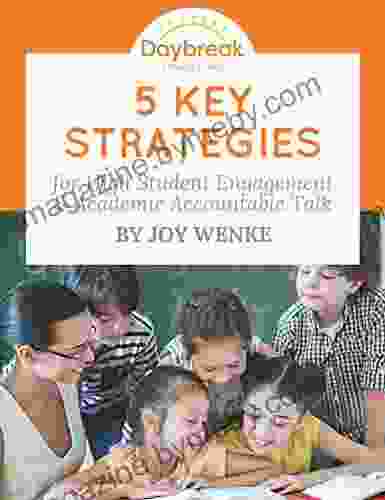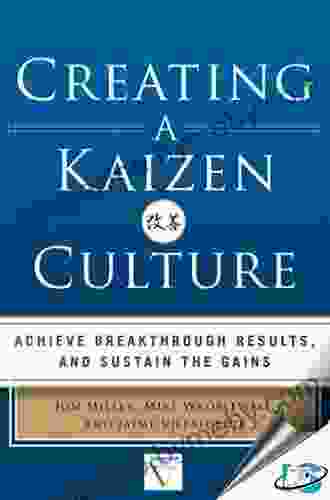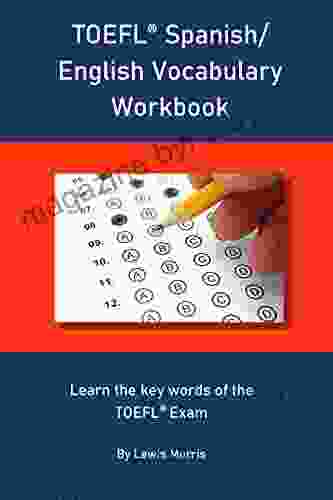Unlock Your Students' Language Skills: The Ultimate Guide to Teaching English Language Arts Standards for Speaking and Listening in Grades 1-2

Mastering the art of effective communication is paramount to students' success in both academic and personal endeavors. The English Language Arts (ELA) Standards for Speaking and Listening, designed for grades 1-2, provide a comprehensive framework for educators to cultivate these crucial skills in young learners. This article delves into the intricacies of these standards, offering practical strategies and captivating lesson ideas to help teachers ignite a passion for language within their students.
Understanding the ELA Standards for Speaking and Listening
The ELA Standards for Speaking and Listening encompass four key domains:
5 out of 5
| Language | : | English |
| File size | : | 2634 KB |
| Text-to-Speech | : | Enabled |
| Screen Reader | : | Supported |
| Enhanced typesetting | : | Enabled |
| Word Wise | : | Enabled |
| Print length | : | 13 pages |
- Comprehension and Collaboration: Students actively listen to and interpret the ideas presented by others, engage in discussions, and collaborate effectively to achieve shared goals.
- Presentation of Knowledge and Ideas: Students present their thoughts and ideas clearly, coherently, and persuasively, utilizing appropriate language and non-verbal cues.
- Language: Students demonstrate a growing command of the conventions of standard English, including grammar, usage, and vocabulary.
- Voice: Students develop their own unique voice and express their ideas with confidence and individuality.
By mastering these domains, students lay the foundation for becoming articulate, effective communicators and active participants in society.
Engaging Lesson Ideas to Bring the Standards to Life
Comprehension and Collaboration:
- Storytelling Scavenger Hunt: Divide students into teams. Provide each team with a list of key events or details from a popular story. Send them on a scavenger hunt around the classroom or school to gather information from different sources (e.g., books, posters, or classmates). Teams collaborate to reconstruct the story based on the information they collect.
- "What's the Message?" Collaborative Discussion: Present students with a short video clip or audio recording. Facilitate a class discussion, encouraging students to listen actively and identify the main message or theme conveyed. Guide them to support their ideas with evidence from the recording.
Presentation of Knowledge and Ideas:
- Persuasive Speech Tournament: Divide students into two groups with opposing viewpoints on a given topic. Provide them with time to research and prepare their speeches. Hold a classroom tournament where students present their arguments, with the audience voting for the most convincing speaker.
- "Minute Mysteries" Oral Storytelling: Provide students with a set of mystery objects or images. In pairs or small groups, students take turns presenting a one-minute oral story explaining the significance or backstory of the object they choose.
Language:
- "Word Detective" Vocabulary Scavenger Hunt: Hide clues around the classroom that lead students to specific vocabulary words related to a particular topic. As they solve the clues, students record the words and their definitions on a worksheet.
- "Grammar Time Travel": Take students on a time-traveling adventure through different grammar concepts. For example, during a lesson on past tense verbs, have them dress up as characters from a historical era and practice using past tense verbs in their dialogue.
Voice:
- "My Unique Story" Personal Narratives: Provide a safe and encouraging environment for students to share their personal experiences and perspectives. Guide them in developing personal narratives that showcase their unique voice and individuality.
- "Voiceover Magic": Have students record themselves reading aloud a short story or poem. Play the recordings back while displaying the text. Encourage students to analyze their own voices and experiment with different tones and inflections to enhance the impact of their reading.
Assessment Strategies to Measure Progress
Effective assessment is essential for tracking students' progress towards meeting the ELA Standards for Speaking and Listening. Consider using a variety of assessment tools, including:
- Anecdotal Records: Observe students during class discussions and presentations, noting their strengths and areas for improvement.
- Student Self-Assessment: Encourage students to reflect on their own speaking and listening skills, identifying areas where they excel and areas where they would like to grow.
- Performance Tasks: Design performance tasks that require students to demonstrate their proficiency in speaking and listening skills, such as presenting a speech, engaging in a debate, or participating in a collaborative group project.
The ELA Standards for Speaking and Listening in grades 1-2 provide an invaluable framework for educators to foster effective communication skills in young learners. By implementing engaging lesson ideas, employing effective assessment strategies, and creating a supportive learning environment, teachers can empower students to become confident and articulate communicators who are well-equipped to navigate the challenges of academic and professional life. Remember, fostering language skills is not merely about teaching students to speak and listen but about unlocking their potential to express themselves with clarity, conviction, and creativity.
5 out of 5
| Language | : | English |
| File size | : | 2634 KB |
| Text-to-Speech | : | Enabled |
| Screen Reader | : | Supported |
| Enhanced typesetting | : | Enabled |
| Word Wise | : | Enabled |
| Print length | : | 13 pages |
Do you want to contribute by writing guest posts on this blog?
Please contact us and send us a resume of previous articles that you have written.
 Book
Book Novel
Novel Page
Page Chapter
Chapter Text
Text Story
Story Genre
Genre Reader
Reader Library
Library Paperback
Paperback E-book
E-book Magazine
Magazine Newspaper
Newspaper Paragraph
Paragraph Sentence
Sentence Bookmark
Bookmark Shelf
Shelf Glossary
Glossary Bibliography
Bibliography Foreword
Foreword Preface
Preface Synopsis
Synopsis Annotation
Annotation Footnote
Footnote Manuscript
Manuscript Scroll
Scroll Codex
Codex Tome
Tome Bestseller
Bestseller Classics
Classics Library card
Library card Narrative
Narrative Biography
Biography Autobiography
Autobiography Memoir
Memoir Reference
Reference Encyclopedia
Encyclopedia Stefan Kanfer
Stefan Kanfer Teruko Sakurai
Teruko Sakurai Mira Kirshenbaum
Mira Kirshenbaum Juan Vidal
Juan Vidal Julie Brown
Julie Brown Jonathan Phillips
Jonathan Phillips Julia Sweig
Julia Sweig Miriam Wenger Landis
Miriam Wenger Landis Julia Summerfield
Julia Summerfield Kimberly Drew
Kimberly Drew Roy Lingster
Roy Lingster Rick Joyner
Rick Joyner Joseph Eleyinte
Joseph Eleyinte Julian Richer
Julian Richer Robert K Yin
Robert K Yin Melinda Powers
Melinda Powers Jon Taylor
Jon Taylor Julie Dachez
Julie Dachez Stanley Scislowski
Stanley Scislowski Kieran Morgan
Kieran Morgan
Light bulbAdvertise smarter! Our strategic ad space ensures maximum exposure. Reserve your spot today!

 Gabriel Garcia MarquezLearning Strategies: Advice From Professional Driving Instructor To Help You
Gabriel Garcia MarquezLearning Strategies: Advice From Professional Driving Instructor To Help You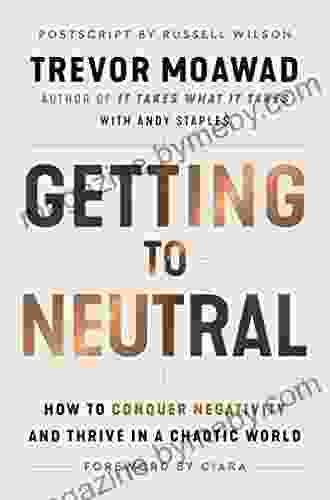
 Cameron ReedMastering the Art of Negativity Conquest: A Path to Thriving in a Tumultuous...
Cameron ReedMastering the Art of Negativity Conquest: A Path to Thriving in a Tumultuous... Cole PowellFollow ·10.7k
Cole PowellFollow ·10.7k Michael SimmonsFollow ·11.9k
Michael SimmonsFollow ·11.9k Colin FosterFollow ·9.8k
Colin FosterFollow ·9.8k Colby CoxFollow ·10k
Colby CoxFollow ·10k Ralph TurnerFollow ·17.1k
Ralph TurnerFollow ·17.1k Davion PowellFollow ·11.4k
Davion PowellFollow ·11.4k Matthew WardFollow ·8.6k
Matthew WardFollow ·8.6k Allen ParkerFollow ·14k
Allen ParkerFollow ·14k
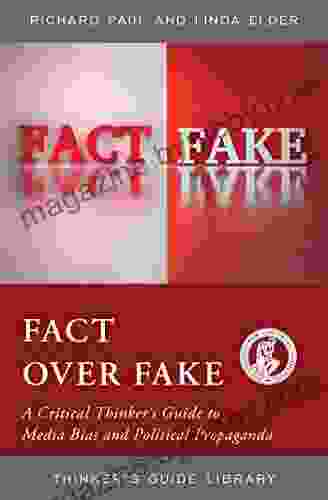
 Efrain Powell
Efrain PowellCritical Thinker's Guide to Media Bias and Political...
In a world awash with information, it has...
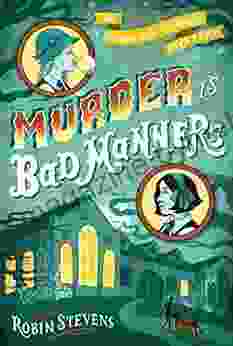
 Aubrey Blair
Aubrey BlairMurder Is Bad Manners: An Unforgettable English Mystery
Prepare yourself for a captivating literary...

 Luke Blair
Luke BlairDon't Settle For Safe: Embrace Adventure and Live a Life...
<p>In this inspiring and...

 W.H. Auden
W.H. AudenRoblox Codes Dragon Adventures King Legacy All Combat...
Roblox is a massively popular online game...
5 out of 5
| Language | : | English |
| File size | : | 2634 KB |
| Text-to-Speech | : | Enabled |
| Screen Reader | : | Supported |
| Enhanced typesetting | : | Enabled |
| Word Wise | : | Enabled |
| Print length | : | 13 pages |


